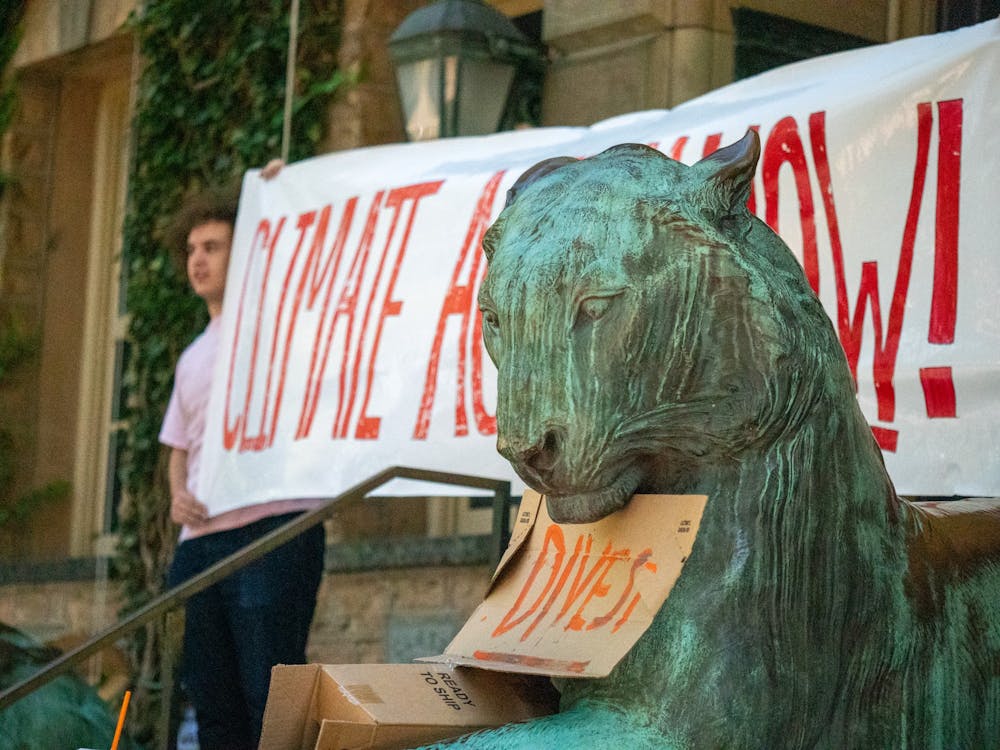When a junior was arrested in his hometown over spring break last March, his friends launched a social media campaign announcing that he was profiled because he was black. As accusations flew across Facebook, we reported fully on the case, including providing the police point of view. Many online commenters were furious that we presented the police account or covered the incident at all. One representative comment stated: "We are a student body community, and since all are currently uncertain of [his] innocence, we might act as a community. We might protect our own until proven that they should not be protected."
It was not the first, and certainly not the last, time I have been criticized as Editor-in-Chief of The Daily Princetonian. But the case was distinctive because it crystallized a fundamental and dramatic misconception on our campus. I am writing today, in the last issue of the newspaper over which I will preside, to explain to our readers, if not persuade them, about our role on this campus.
The misconception can be boiled down to this: We are a student newspaper, yes, but we are not the students' newspaper.
Let me be clear: I am not saying that we are not a newspaper operated by students. Students have ultimate editorial discretion over the content in the newspaper and website; the newspaper's publishing company is operated by a graduate board consisting of former 'Prince' members, many of whom are journalists themselves.
What I mean, however, is that our primary role as a campus news organization is not to act on behalf of any one student or even the students in general. It is not to "protect our own," and it is not to "act as a community." We are an objective news organization that reports the truth without an agenda.
Yet, there is an outspoken minority of people — from students to some of the most senior administrators at the University — who see it differently. They argue that the 'Prince' should exist to promote a positive image of the University and its students.
The complaints appear in a variety of circumstances: We should shy away from asking difficult questions of administrators because it could impede their ability to do their job. We should refrain from reporting on candidates for a particular vacancy at the University because it could hurt candidates' future careers. We should rewrite quotes of famous University professors or award-winning students because, after all, we should make sure they look good. We should remove entire articles from our website because they do not benefit the University.
The case of the junior was no different. One commenter responded to our coverage by saying, "I'm sure he appreciates this well-meaning 'campaign' on his behalf." Another commented: "You're not a member of the media, and have no obligation to act as such. You are, however, a member of the Princeton community, and have a responsibility to your fellow students..."
This is simply not true.
I am not arguing that journalism should be devoid of compassion. Our reporters act with extraordinary compassion and empathy when covering the most difficult topics, from race to religion to suicide, on this campus. But that is not the same as saying that our role is to act on behalf of, or to defend, or to attack, a particular person or institution.
I recognized early on in my term that a misconception existed, but I did not fully understand its nature. After the arrest article was published, I wrote a column explaining why we cover crime. But, it was not enough to simply explain our approach to covering crime. The larger issue, as I've come to understand, was the proposition that we should actively be taking sides; in this case, the argument was that we should run a story only if it serves the interests of a student, assuming we are able to predict what a student's interests are.
Four days after the 'Prince' initially covered that studentís arrest, the police dropped all charges, news that, like the initial coverage, merited a front page article. In response to the dropped charges, one commenter, under the name "shameful coverage still unaddressed," stated: "The editor-in-chief should now feature a front page article talking about what he learned from all this."

It may be 10 months late, and not on the front page, but here is what I've learned: While a vocal minority of our readers do not understand the role of the 'Prince' on this campus, I've also learned that the majority of our readers do. And the reporters and editors who will lead the newspaper in the coming year do too. They understand that we cannot inform if there is a haze of bias over everything we produce and that we cannot be a credible source of news if we are deferential to the powerful interests at the University.
Henry Rome, the outgoing editor-in-chief of The Daily Princetonian, is a politics major from Strafford, Pa. He can be reached at hrome@princeton.edu.








